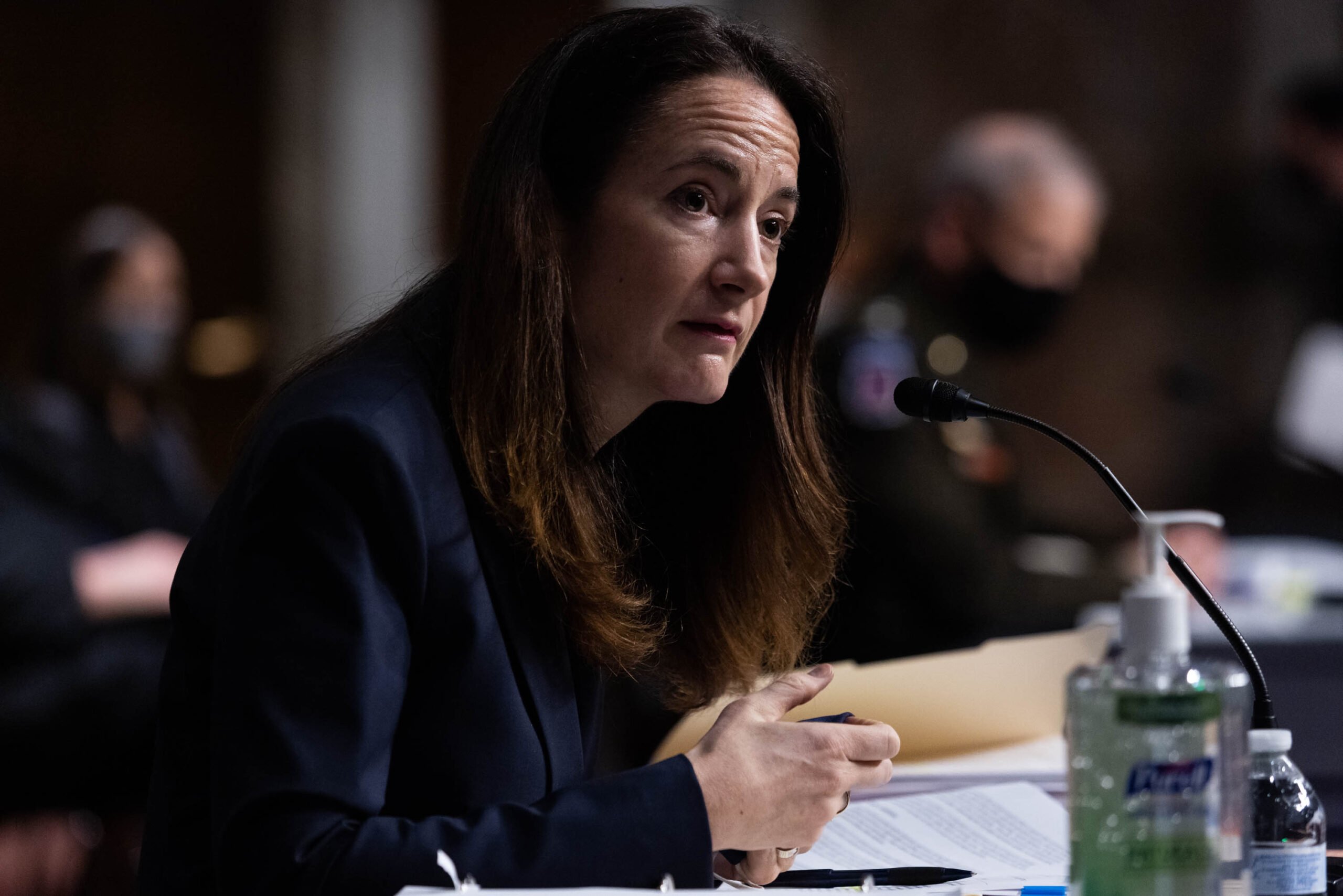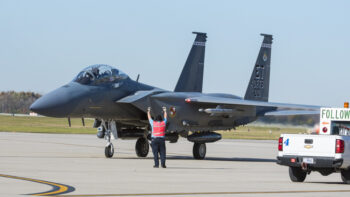
WASHINGTON, DC – APRIL 29: Director of National Intelligence Avril Haines testifies on Capitol Hill, April 29, 2021. (Photo by Graeme Jennings – Pool/Getty Images)
WASHINGTON: The events that played out in Afghanistan in recent months have been “gut-wrenching” and “deeply personal” for the Intelligence Community, Director of National Intelligence Avril Haines told an audience of government and industry officials today.
The comments come amid widespread public debate over the Biden administration’s decisions about the US withdrawal from Afghanistan — and how some of those decisions were made. The episode has spurred questions about whether the chaos and bloodshed surrounding the withdrawal resulted in a failure of intelligence or operational planning or both.
Speaking to the press on Aug. 19, Chairman of the Joint Chiefs of Staff Gen. Mark Milley said he had seen no intelligence that predicted what unfolded. “There was nothing that I or anyone else saw that indicated a collapse of this [Afghan] army or this government in 11 days,” Milley said.
Haines did not specifically address questions about intelligence gathering leading up to or during the withdrawal. But she did hit on another thorny issue: The trouble the US is expected to have in gathering intelligence now that so many US officials, including intelligence officers, have pulled out and the Kabul embassy has been shuttered.
“There’s no question that as you pull out… our intelligence collection is diminished,” Haines said during opening remarks at the 2021 Intelligence & National Security Summit organized by the Armed Forces Communications & Electronics Association (AFCEA) and the Intelligence and National Security Alliance (INSA). “In Afghanistan, we will want to monitor any reconstitution of terrorist groups.”
But Haines said the IC currently views places like Yemen, Syria, and Iraq with greater concern than Afghanistan, while adding that, globally, “the terrorist threat has diminished over time.”
She also said there are still potential threats from those “inspired by the ideology, including in the homeland” and referred to domestic terrorist threats as a “potpourri of instigators.”
“[Domestic terrorism] is a growing and concerning threat, and one we’re focused on. We play an important role, but it does have its limitations,” she said, referring to laws that restrict the IC’s ability to operate within the US.
Haines acknowledged that, overall, the IC has begun shifting budgets and priorities from a 20-year focus on counterterrorism to near-peer competitors China and Russia, as well as a handful of rogue states like Iran and North Korea. She said there is “consensus across the community” that China is the biggest threat to the US going forward.
The required changes within the IC are gradual, Haines admitted.
“Government is a big ship, and you’re just trying to shift the trajectory. It’s slow, but it’s happening,” she said. She said the IC’s changing focus is “almost like a paradigm shift,” adding “There are things we learned from counterterrorism that we can apply” to competition with countries like China and Russia.
Haines also touched on the IC’s work to address disinformation, which she characterized as “critically important.” Just last week, US cybersecurity outfit Mandiant Threat Intelligence detailed a Chinese influence campaign that sought to spark protests in the US, which researchers noted is “potentially indicative of an emerging intent to motivate real-world activity outside of China’s territories.”
The IC is now in the process of standing up a congressionally mandated center to thwart disinformation, Haines said, but added that the IC “must prioritize.” Intelligence agencies “can’t go after all disinformation everywhere. We have to figure out what to go after in a way that is consistent with our values and our democratic system,” she added.
In the wide-ranging talk, Haines also noted her focus as DNI includes people — what she called “the bones” of the IC — new and emerging tech, developing internal IC expertise in new trends, partnerships, and resilience “in conflict and competition, which includes cyber and supply chain.”
There was a lighter moment during the discussion when moderator Letitia Long, chair of the INSA Board, had technical problems with her tablet and joked that someone must be jamming her device.
“I promise it’s not us,” Haines quipped.
France, Germany ink deal on way ahead for ‘completely new’ future European tank
Defense ministers from both countries hailed progress on industrial workshare for a project that they say “will be a real technological breakthrough in ground combat systems.”

























